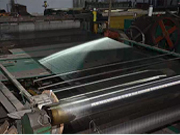Aug . 14, 2024 03:01 Back to list
Durable Wire Materials for Effective Gabion Basket Construction and Landscaping Solutions
The Importance of Wire for Gabion Baskets
Gabion baskets are increasingly popular in civil engineering and landscaping applications, serving as versatile and effective solutions for erosion control, structural support, and aesthetic enhancement. Central to the efficacy of these baskets is the wire used to construct them. Understanding the various types of wire and their characteristics is essential for selecting the right materials for different projects.
What are Gabion Baskets?
Gabion baskets are wire mesh containers filled with rock, stone, or other materials. They are often used in building retaining walls, riverbank protection, and landscaping projects. The baskets allow for natural drainage while also providing stability and appeal. Their open structure enables them to blend seamlessly with the environment, making them a popular choice among landscape architects and civil engineers.
Types of Wire Used in Gabion Baskets
The wire used in gabion baskets can come in several different forms, primarily welded wire and woven wire
.1. Welded Wire This type of wire is made by welding intersecting wire strands together. It provides greater strength and stability than woven wire, making it suitable for applications requiring higher load-bearing capacities. Welded gabions are particularly useful in areas with extreme weather conditions or heavy soil erosion.
2. Woven Wire Woven wire is made by intertwining the wire strands, which allows for a more flexible structure. While it may not be as strong as welded wire, woven wire gabions offer the advantage of being lighter and easier to transport. This type is ideal for landscaping and smaller-scale applications.
wire for gabion baskets

Wire Coating and Corrosion Resistance
One critical aspect of wire selection is the coating used for corrosion resistance. Gabion baskets are typically exposed to the elements, and without proper protection, the wire can rust and weaken over time. The most common types of coatings are
- Galvanized Coating Applying a layer of zinc to the wire helps prevent corrosion. Galvanized wire is popular due to its durability and longevity, often lasting for decades even in harsh environments.
- PVC Coating For additional protection and aesthetic value, some gabion wires are coated with a layer of PVC. This not only enhances corrosion resistance but also allows for color customization to match the surrounding landscape.
Advantages of Using Gabion Baskets
The benefits of incorporating gabion baskets into construction and landscaping are numerous. They offer excellent drainage, which reduces water pressure behind retaining walls, thereby minimizing the risk of failure. The flexibility of designs allows for creative landscape architecture while providing robust solutions for erosion control. Additionally, gabions are eco-friendly; they can use locally sourced materials for filling, minimizing transportation costs and environmental impact.
Conclusion
In summary, the wire used for gabion baskets plays a critical role in their performance and longevity. Whether opting for welded or woven wire, engineers and landscapers must consider factors such as strength, corrosion resistance, and aesthetic appeal. Gabions are not only functional solutions for a range of civil and landscape engineering issues but also contribute to the beauty of the environment. Understanding the technical aspects of the wire enables users to make informed decisions, ensuring the successful application of gabion baskets in various projects. With their durability, adaptability, and integration with nature, gabion baskets will continue to be a reliable choice in construction and landscaping for years to come.
share
-
60 Inch Chain Link Fence Durable Security & Easy Installation Solutions
NewsApr.29,2025
-
1 Inch Chain Link Fence Durable Security Fencing Solutions
NewsApr.29,2025
-
Affordable Aluminium Frame Mosquito Nets for Windows Best Prices
NewsApr.29,2025
-
Affordable Aluminium Mosquito Mesh for Windows Price & Deals
NewsApr.28,2025
-
Top 316 Stainless Steel Wire Mesh Suppliers Custom Screens
NewsApr.28,2025
-
Premium Fine Copper Mesh Screen Durable & Custom Sizes
NewsApr.28,2025

